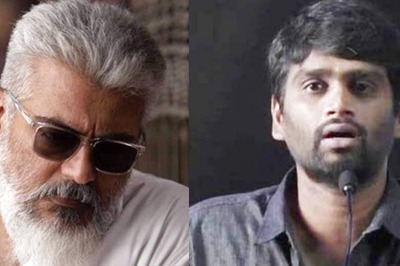
views
New Delhi: Union Health Minister Harsh Vardhan on Wednesday confirmed that one person in Delhi, six in Agra, 16 Italian tourists and an Indian driver, one person in Telangana and three in Kerala have so far tested positive for coronavirus in India, taking the total number to 28.
As panic and confusion rises among the general public over the global outbreak, CNN-News18 speaks to Soumya Swaminathan, Chief Scientist, World Health Organization about India’s preparedness, possibility of mass travel restrictions and effectiveness of masks and gloves against the deadly virus. Edited Excerpts:
While the health minster sounds confident about handling the coronavirus outbreak, many experts claim India's overcrowded health system may succumb if outbreak gets bigger. What's your assessment?
It’s all about preparedness. This is a time for us to prepare. Luckily, we've had enough warning because the outbreak has been going on in China and other countries so we've had several weeks to prepare the system. I think we have a good national plan. I think India should be able to tackle this.
The fact is that we haven't yet found conclusively what may be the most definite cause of the outbreak. We don't have medicine to treat the infection either. Do you feel there may be some mild cases that aren't being diagnosed?
We know a lot about this virus. We've learnt that in the majority of cases it is very mild and it’s just like common cold, couple of days of fever, common cough, some fatigue, like a flu and then you get over it, you get better. There could be people who have the infection who don’t even realise it that they have it. Then you have a few cases of about 15 to 20 percent people who go on to develop severe infections, lung involvement, viral pneumonia, needing ICU care. The whole spectrum from very mild to severe but majority are mild. It is not some deadly killer virus it’s another form of common cold virus.
It has been seen that we Indians are not accustomed to using protective shields like masks, gloves etc. Do you feel it will take lesser time for the virus to spread in a country like ours?
Basic hygiene such as hand washing, not touching your face, nose and eyes is important. If you have a cold and cough or are taking care of someone infected, only then should you wear a mask. No use in a healthy person wearing a mask. It is likely to result in a shortage of masks.
We saw in China and in Europe that they quarantined city after city. Many say the West and China could afford to do that but not India. They say that India is a poor country and cannot afford mass travel restrictions/shutdowns due to employment concerns. Do you agree with this assessment?
Every country has to take a decision on risk assessment and the status of outbreak. The measures China took were necessary at that time because of the wide transmission. India is not at that stage. But we need to think about what measures we will take at what stage and have a plan and communicate that plan to the public. A well thought out response plan is needed. So far the government has done well.
Here in India it's a season when temperature is changing. Many of us are suffering from cold, bad throat, mild fever, cough etc. These are symptoms resembling those of coronavirus infection. What's the way to differentiate between a common cold or influenza and a coronavirus case?
There is no way to differentiate and there is no need for it either. We can take some common sense precautions. Cough hygiene is important. People should cough into elbows or into a tissue. Avoid going out if you have cold and cough. Wear a mask. If there is shortness of breath, go to the hospital.
There are many instances of global outbreaks. Why is this outbreak being seen as unprecedented?
We've seen several such instances in the past but this one is different. It seems to be rapidly spreading, more transmissible. We've had global outbreaks in the past in the pandemic influenza. H1N1 in Indiana in 2009, H195, SARS, MERS. We've learnt from all of these. At the WHO, we have an R&D blueprint which looks at the priority pathogens and tries to prepare us for the tools we'll need. Outbreaks are challenging but we also have global solidarity.




















Comments
0 comment